7 Most Commonly Neglected Issues When Buying Landed Homes
January 24, 2022
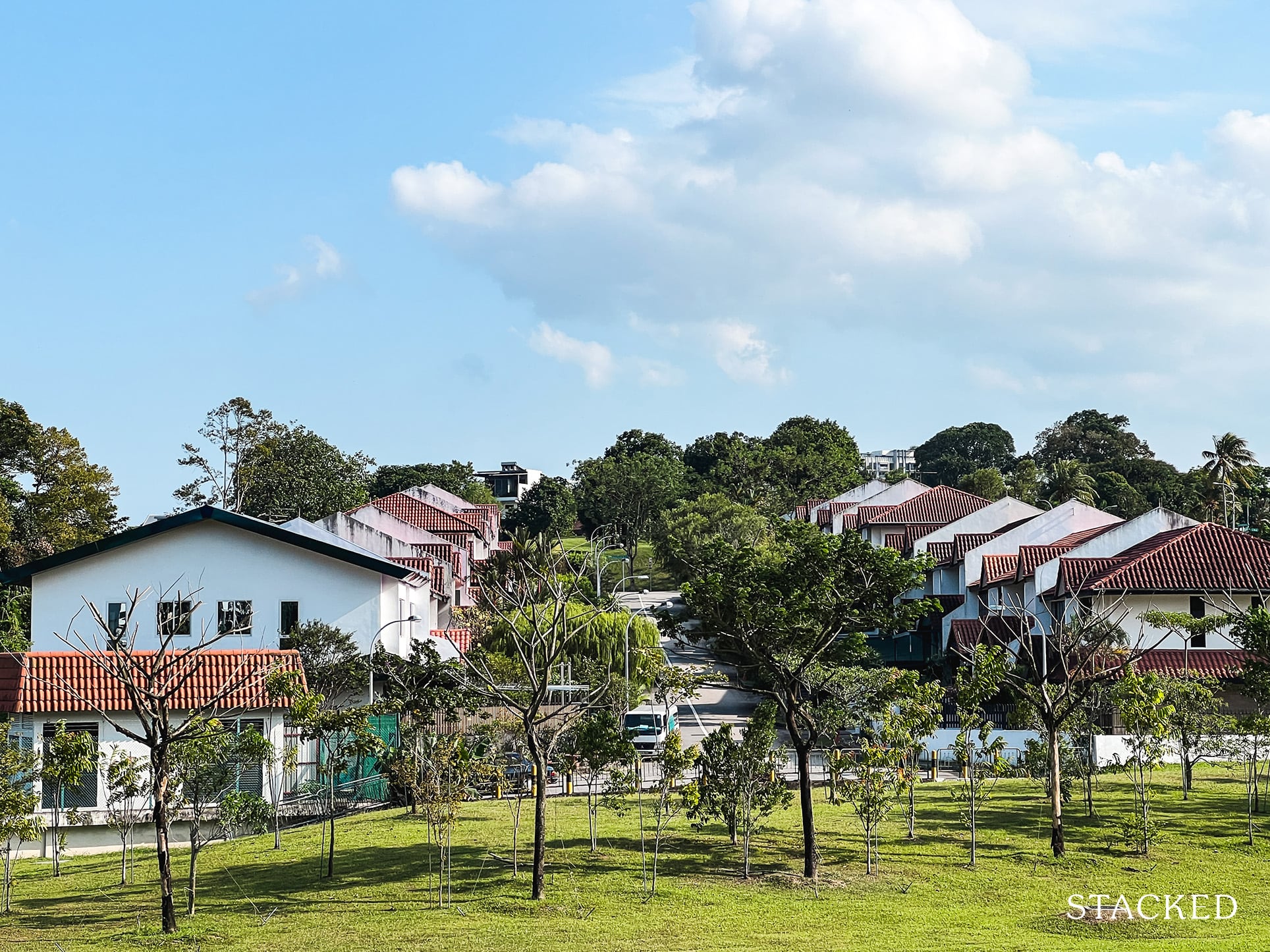
Landed housing is a dream for many Singaporeans – the crème de la crème of the private housing market. It’s quite clear from our cheapest freehold landed homes series just how popular these homes are. However, living in a landed home brings its own range of challenges. With no “management committee” other than your own two hands, everything from maintenance to the initial construction falls to you. Before you upgrade to one of these, here are some commonly overlooked drawbacks:
Note: Most of the following does not apply to strata-titled landed homes, such as cluster housing. Strata-titled landed properties still have an MCST, shared common facilities, and so forth. For more details on this, see our earlier article. Factors that also apply to strata-titled landed homes are indicated as such.
So many readers write in because they're unsure what to do next, and don't know who to trust.
If this sounds familiar, we offer structured 1-to-1 consultations where we walk through your finances, goals, and market options objectively.
No obligation. Just clarity.
Learn more here.
1. For multi-storey homes, stairs can be a problem in later years
From experience, we’ve found the most common reason for downgrading from landed homes, in later years, isn’t financial. The main reason is stairs.
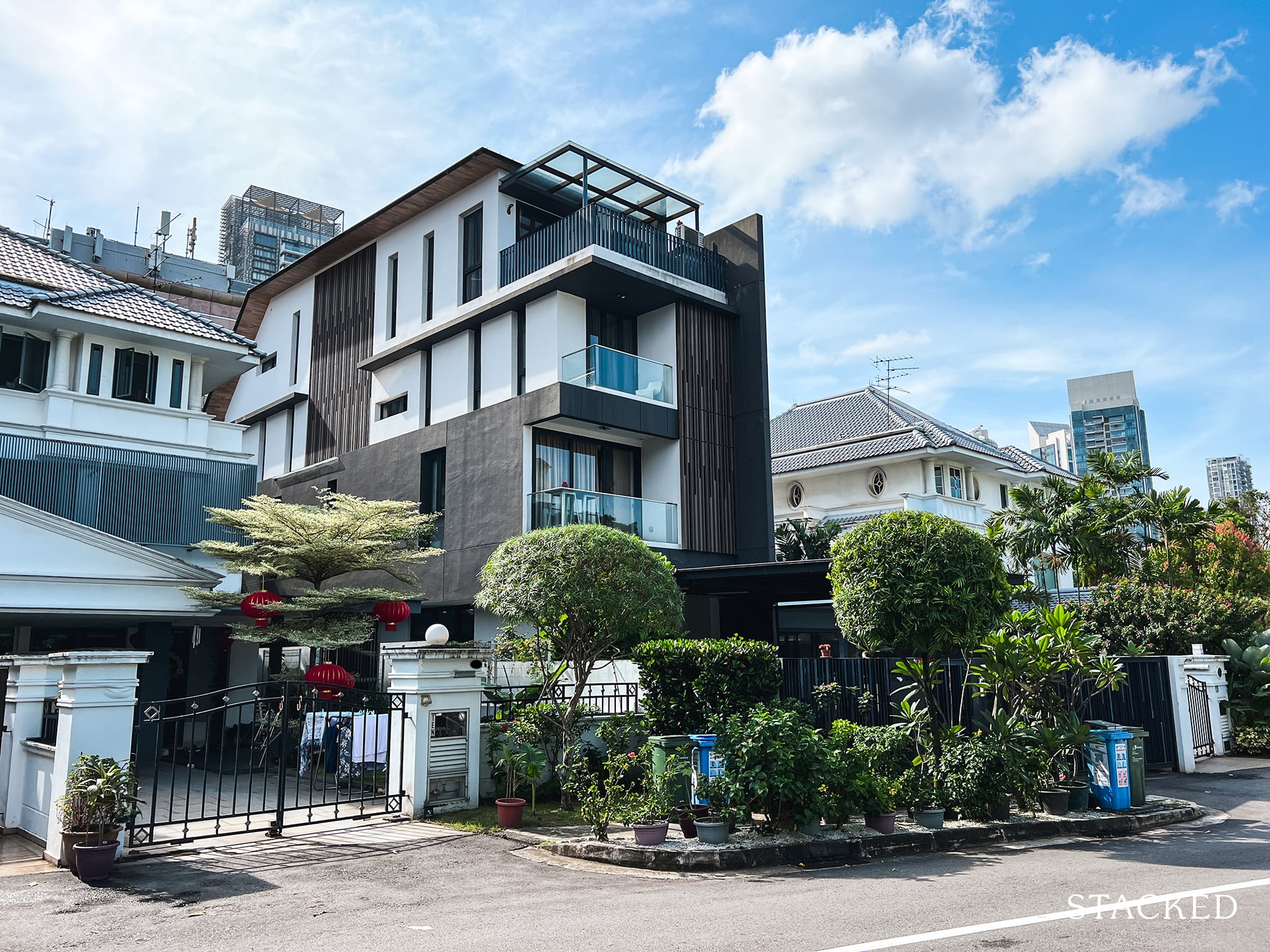
This is important to think about if you’re living with older parents, or are nearing your later years yourself. Unless you’re willing to install elevators or stairlifts (which not all places can accommodate), you may have problems cleaning and maintaining rooms over different floors. There’s also a safety consideration here – even with non-slip surfaces, the fact is staircases will always be more dangerous to the elderly.
For these families, it may be more practical to get a single-storey landed home, or nothing higher than a double-floor unit. There are also variations to the layout to consider, there are those with bedrooms on the ground floor as well – or more commonly (and appropriately known) as the granny room!
2. Maintenance is cheaper… until it’s suddenly not
You don’t pay maintenance fees as you would in a regular condo, but this can be a double-edged sword.
In a condo, you pay the same maintenance fees, whether the damage to be fixed is a minor leak, or something as major as having to re-pave the driveway. Of course, this could increase as the development ages, but it will ultimately be a shared cost. For landed properties, you may well pay nothing each month, other than what’s necessary – but when something major happens, such as serious plumbing or roofing damage, you bear the entire cost yourself.
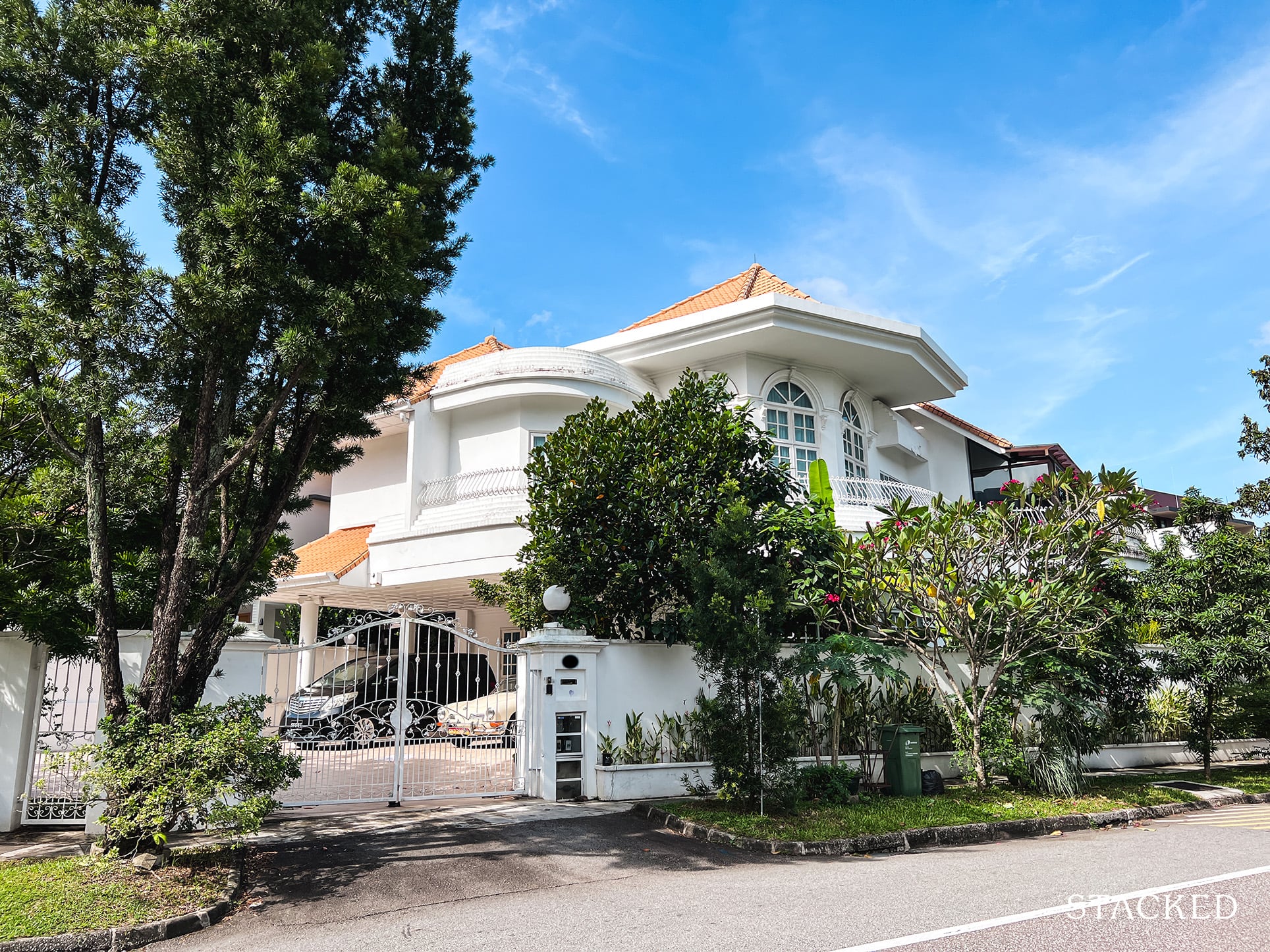
Likewise, maintenance of exteriors – such as having to repaint the entire façade – can be expensive. This makes maintenance costs quite volatile for landed homes: you may pay nothing for months or years, but then suddenly be confronted with a five-digit bill for repairs.
As such, you’d be well advised to set aside a special fund for repairs, or just to ensure you have sufficient savings for emergencies. It’s also a good idea to conduct checks once every year, to head off any potential damage before it happens (this is especially important to detect pests early, as even a small termite infestation can become a costly disaster over a few months).
It also goes without saying that some of these repairs can be major (roof leaks, etc), so you could possibly also have to move out during the renovation period and incur rental costs as well.
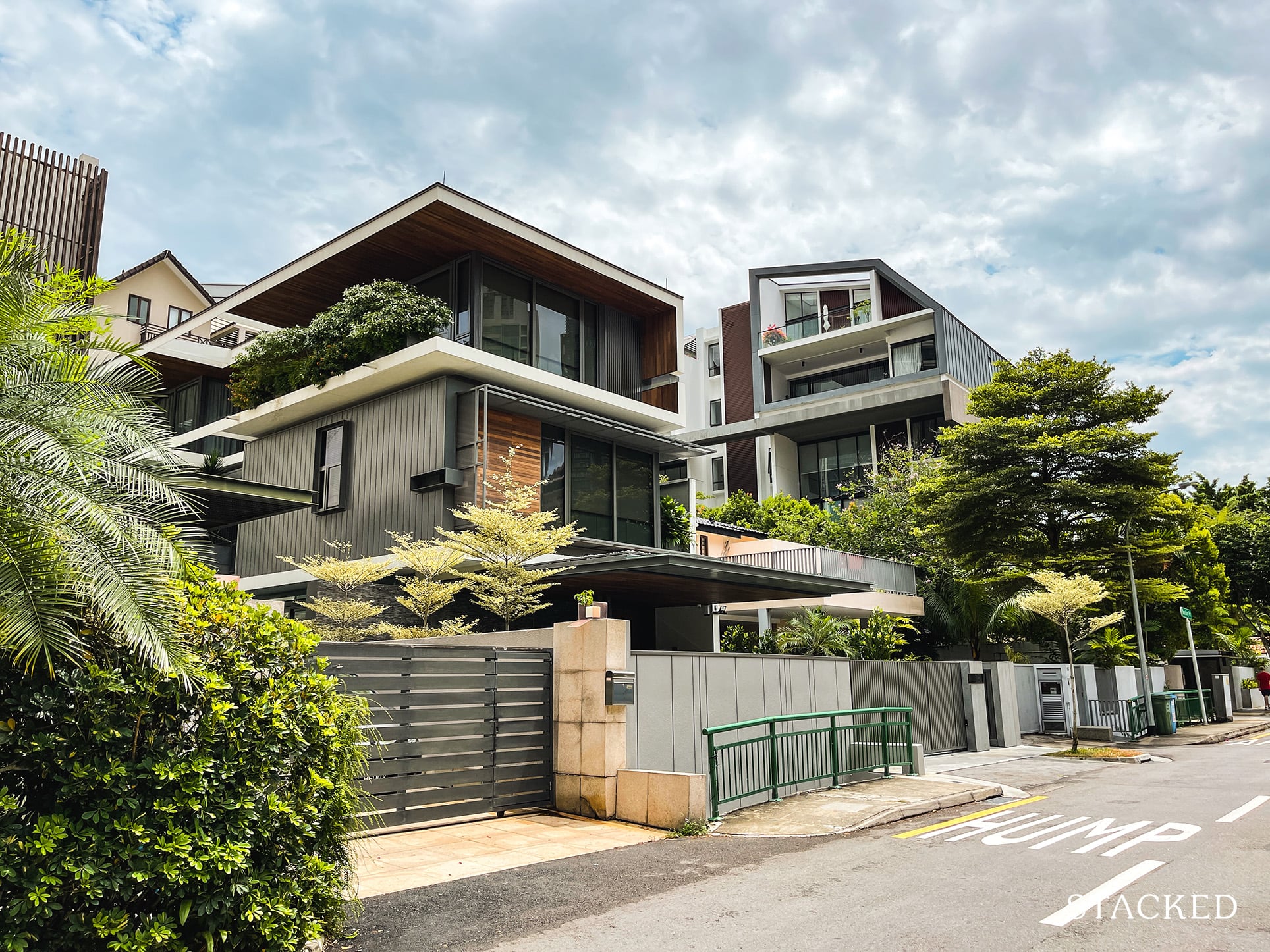
Property Investment InsightsFreehold VS Leasehold Landed Property: Exploring The Gap And How Prices Have Moved Over The Years
by Ryan J. Ong3. Most landed homeowners end up needing a domestic helper
From cleaning out dead leaves from gutters to having to mow the lawn, landed homes demand attention.
It’s not uncommon for owners to end up burning one or two weekends, just to keep the property clean. Most landed homeowners will, at some point, give in and concede that they need domestic helpers (especially as they get older).
This is why some landed homeowners don’t see the lack of monthly maintenance fees as a huge bonus: they’ve figured the cost of hiring someone to clean the place more than makes up for it.
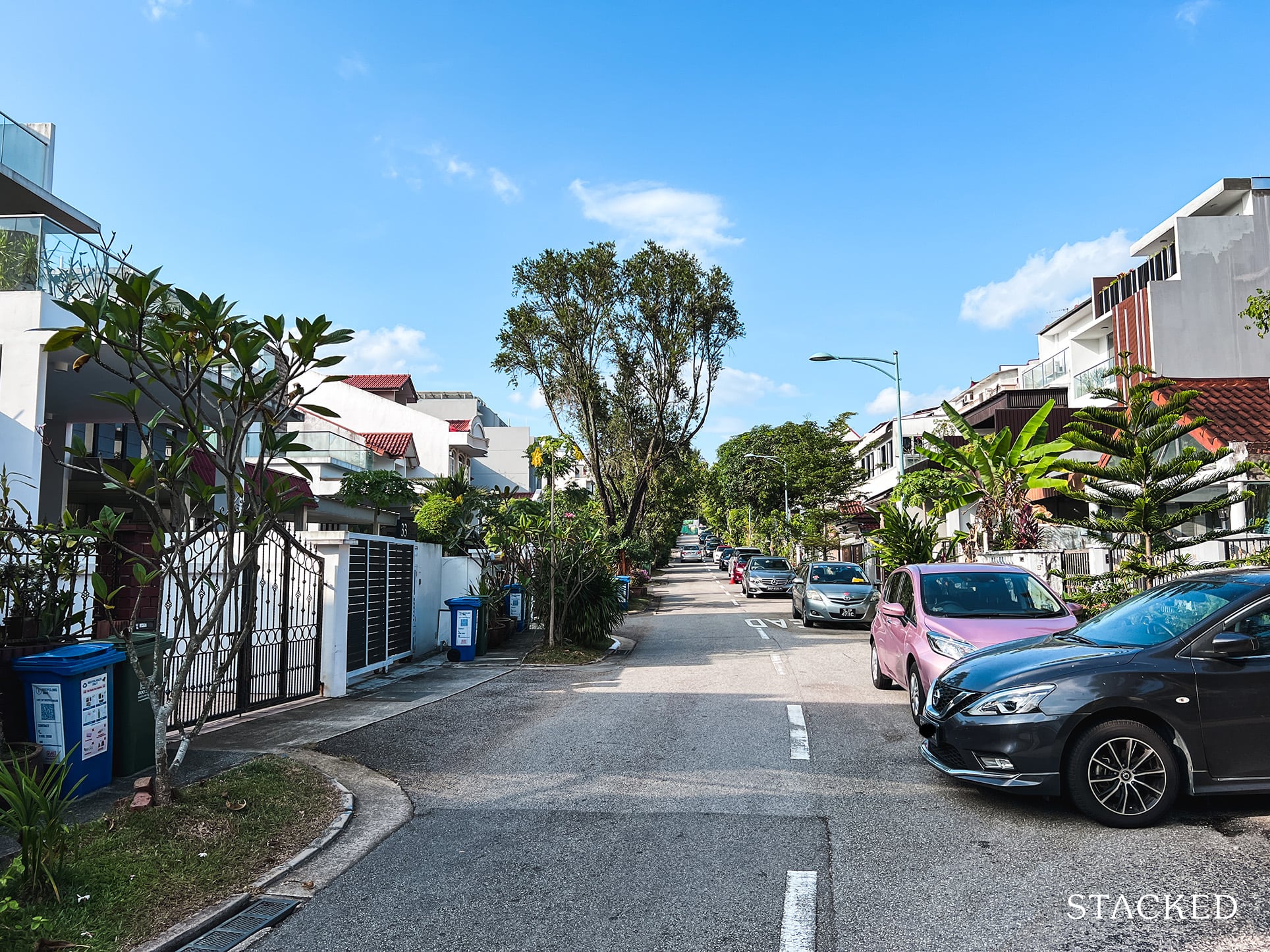
4. Pets and young children have an easier time running out onto the road
In condos or HDB flats, there’s an added barrier in the form of the elevator (assuming you don’t live on the ground floor). For condos, most ground floor lift lobbies are enclosed, preventing them from running out even if they manage to ride the lift down.
Landed homes don’t have these added obstacles. It’s one of the reasons why, when you see notices for missing dogs or cats, it’s most often from the owner of a landed property.
As most landed homes have a road right outside, there’s a real danger posed by traffic. Also, landed homes don’t come with private security, and you’re the only ones living there: if your pet or child runs out, you can’t count on a security guard or bystander having seen them.
So for families with pets or young children, you need extra precautions to prevent them from running out (e.g., don’t pick front gates with huge gaps, that your dog can squeeze through easily).
5. Pest problems are tougher for landed homeowners
You have a yard, the ground floor is all yours, and waste disposal tends to happen closer to your home (unlike strata-titled developments, where dumping grounds tend to be located far away or underground).
Due to this combination of factors, landed homeowners have a tougher fight against vermin. It’s inevitable that centipedes, cockroaches, and other vermin will come in from a backyard; and you need to be extra diligent with garbage, lest you cause a rat problem.
One agency that’s commonly dreaded by landed homeowners is the National Environment Agency (NEA).
Some homeowners even believe that NEA is stricter toward them, as landed homes carry a higher risk of mosquito breeding. While there’s no proof of this, we do know one thing for sure: having a backyard, drain gutters around roofs, more potted plants, etc. does increase the risk of being caught with mosquito larvae.
Pests are a commonly overlooked risk for pet owners. If you have curious dogs or cats, there’s a higher risk they may eat something they shouldn’t; like poisonous frogs or insects from the garden. Also, don’t overlook the higher risk of fleas and ticks.
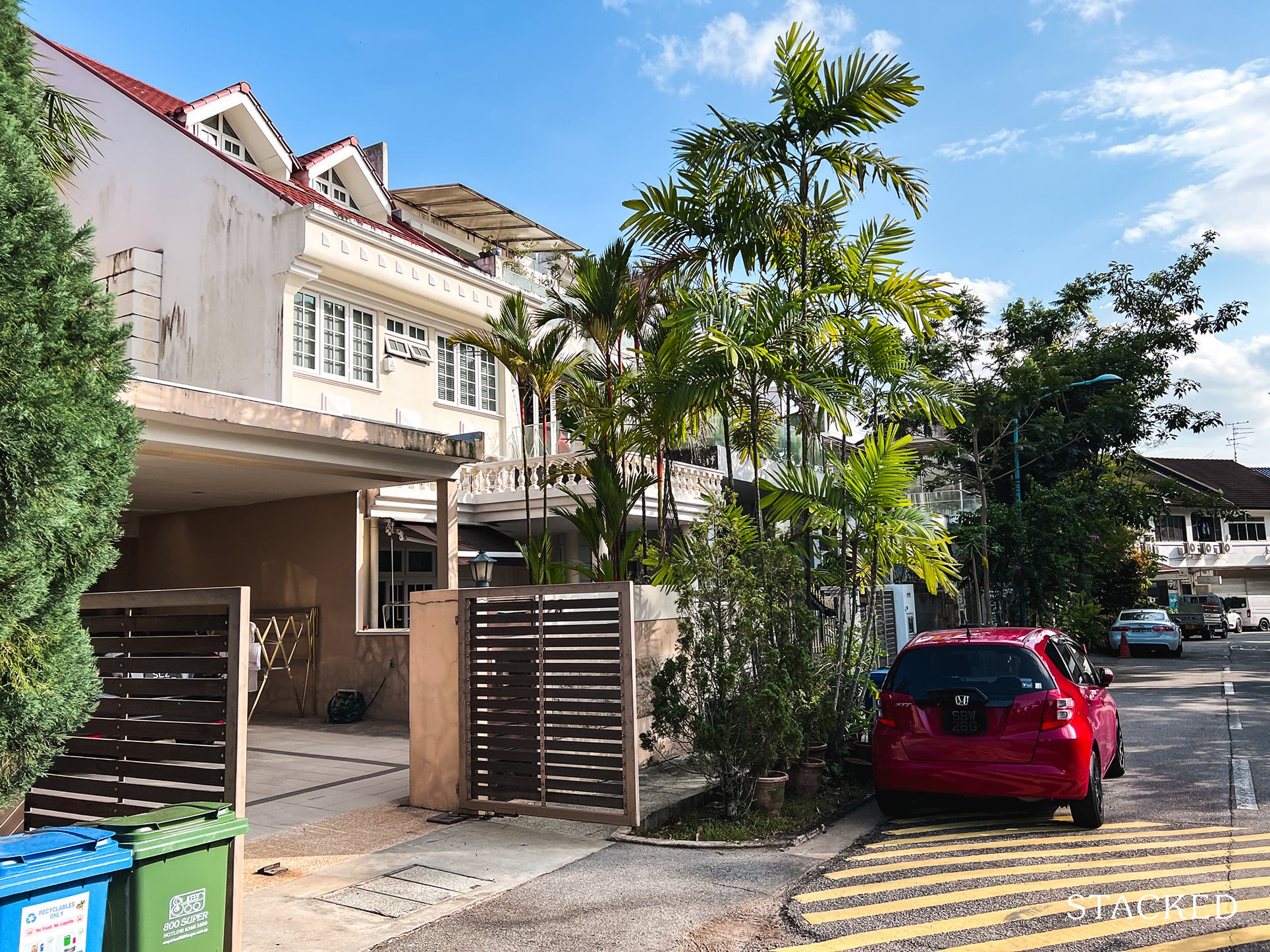
6. Inconsiderate motorists sometimes block your driveway or clog the narrow roads right outside your property
This is most common among landed properties near places of worship. During worship days, the already narrow roads in landed enclaves can become completely blocked. A particularly notorious spot is the landed housing enclave in Siglap, where Sunday church services result in weekly jams (Covid-19 might have helped ease the situation). But Siglap is by no means the only landed enclave with such problems, so check at different days and times when viewing the property.
Similar problems can happen on festive occasions like Christmas, Chinese New Year, etc. On these occasions, inconsiderate drivers might park right in front of your driveway, and block you in for hours. This issue is so bad in some areas, that landed homeowners sometimes use wheel clamps and fine drivers.
So stay alert for warnings signs about illegal parking, when you view the properties. If you see a lot of such signs in one area, it could be an omen of things to come.
7. Home security issues
As we mentioned in one of the earlier points, you don’t enjoy the benefit of security guards as you do in a condo development. While we are very blessed that Singapore is such a safe country, some landed homes can be surprisingly secluded and some of these spaces will have a need for proper security. Especially if you have young children or just a lot of valuables at home, you would need to invest in a robust security setup for that additional peace of mind.
For some, just a regular CCTV in plain sight can be a good enough deterrent. But to really guard against a potential break-in, there are services from security companies that will install motion sensors that will trigger an alarm should there be any disturbances. This will have a monthly cost to it, so it’s just another expense to bear in mind.
For more expert tips on house hunting, follow us on Stacked. We’ll also provide you with the latest trends and strategies in the Singapore private property market, and in-depth reviews of new and resale condos alike.
At Stacked, we like to look beyond the headlines and surface-level numbers, and focus on how things play out in the real world.
If you’d like to discuss how this applies to your own circumstances, you can reach out for a one-to-one consultation here.
And if you simply have a question or want to share a thought, feel free to write to us at stories@stackedhomes.com — we read every message.
Ryan J. Ong
A seasoned content strategist with over 17 years in the real estate and financial journalism sectors, Ryan has built a reputation for transforming complex industry jargon into accessible knowledge. With a track record of writing and editing for leading financial platforms and publications, Ryan's expertise has been recognised across various media outlets. His role as a former content editor for 99.co and a co-host for CNA 938's Open House programme underscores his commitment to providing valuable insights into the property market.Need help with a property decision?
Speak to our team →Read next from Property Advice

Property Advice We Sold Our EC And Have $2.6M For Our Next Home: Should We Buy A New Condo Or Resale?

Property Advice We Can Buy Two HDBs Today — Is Waiting For An EC A Mistake?

Property Advice I’m 55, Have No Income, And Own A Fully Paid HDB Flat—Can I Still Buy Another One Before Selling?

Property Advice We’re Upgrading From A 5-Room HDB On A Single Income At 43 — Which Condo Is Safer?
Latest Posts

Singapore Property News I’m Retired And Own A Freehold Condo — Should I Downgrade To An HDB Flat?

New Launch Condo Reviews What $1.8M Buys You In Phuket Today — Inside A New Beachfront Development

Overseas Property Investing This Singaporean Has Been Building Property In Japan Since 2015 — Here’s What He Says Investors Should Know




































1 Comments
1) “For multi-story homes, stairs can be a problem in later years.”
Some landed property has a bedroom on the ground floor with a full bathroom (shower, sink, and toilet) nearby. A bedroom can be created on the ground floor when the renovation is done before moving in.
2) “Maintenance is cheaper … until it’s not”
This does not apply to DIY owners.
3) “Most landed homeowners end up needing a domestic helper.”
A domestic helper is most likely not needed if a large storeroom is created in the attic. This allows the house to have a “minimalist look” with no clutter making cleaning a lot easier and faster in addition to providing more useable living space. Also, large families often stay in landed properties. Cleaning the house (basically, just vacuuming) can be rostered.
4) “Inconsiderate motorists sometimes block your driveway or clog narrow roads the narrow roads right outside your property.”
This is true for landed estates composed mostly of terrace houses. Large families often mean more cars per family. The best is an estate composed of all semi-d houses and there is only one in Singapore – Burgundy Hill along Bukit Batok Ave 3. The place is more open and spacious and there is ample street parking.